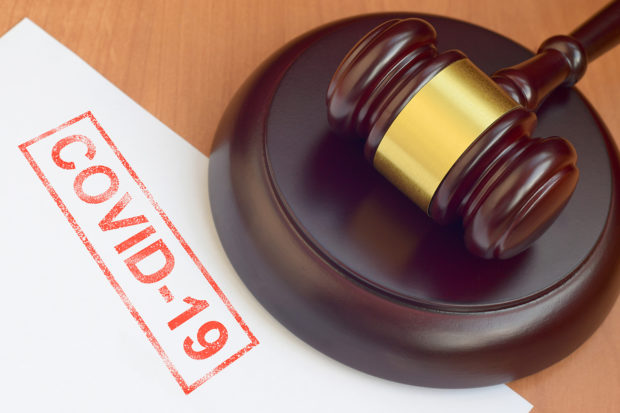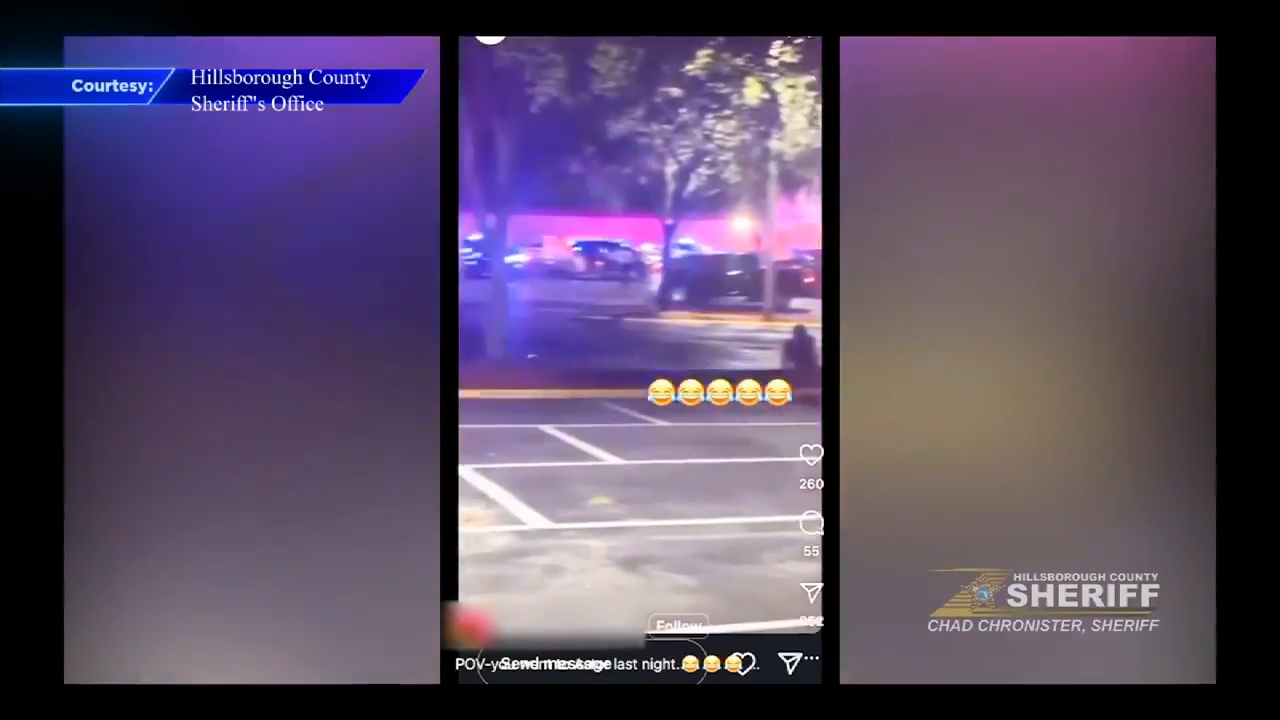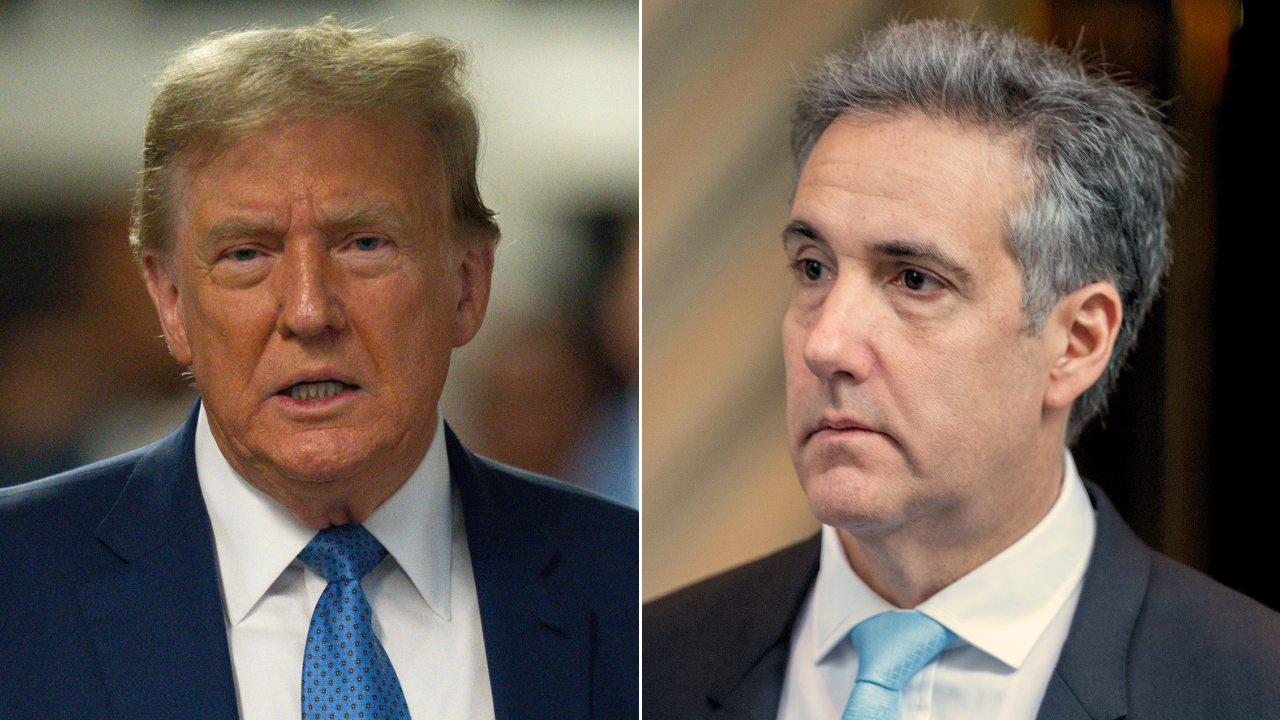Massachusetts
Massachusetts family is safe at home after escaping Gaza, another family makes it to Egypt

A Medway family is safe at home after being trapped in Gaza amid the Israel-Hamas war, while another local family has fled the war zone and made it into Egypt.
Abood Okal, Wafaa Abuzayda, and their 1-year-old son Yousef finally arrived at Boston Logan International Airport on Monday, and they’re now at their Medway home after escaping from Gaza.
“The Okal Family continues to be incredibly thankful for their family and friends around the world who spoke up on their behalf, the Medway community, the media for sharing their plight and the plight of the hundreds of other Americans trapped in Gaza, their elected officials who fought hard for their return, and the State Department for providing them with safe departure,” a family spokesperson said in a statement.
“While the Okal Family is relieved to be home in Medway, their thoughts continue to be with their family, including both Abood and Wafaa’s parents, and the other innocent civilians who are still in Gaza, who may not have the same opportunity they had to leave and who continue to suffer from hunger, dehydration, lack of access to fuel and medicine, and intensifying air strikes,” the spokesperson added.
The Shafai family of Plymouth was also able to get out of Gaza and make it into Egypt, according to U.S. Sen. Edward Markey and U.S. Rep. Bill Keating.
“We welcome the good news that the Shafai family are out of Gaza and will soon be on their way home to the United States after weeks of our entreaties to the Department of State, and Israeli and Egyptian officials,” Markey and Keating said in a joint statement on Tuesday.
“Hazem, Sanaa, Seera, Yumna, and Jasser have been in the thoughts and prayers of everyone in Massachusetts, and we must continue to push for every American citizen to return home safely,” Markey and Keating added. “We will continue calling for immediate humanitarian assistance for civilians in Gaza and for the immediate release of all hostages.”

Massachusetts
Massachusetts High Court Reheats Recipe in Restaurants' COVID-19 Insurance Denial

In a ruling against an upscale restaurant chain, the Massachusetts Supreme Judicial Court has affirmed its 2022 ruling that the COVID-19 virus does not trigger business interruption insurance because it does not cause “direct physical loss or damage.”
Davio’s restaurant chain sought to recover under its all-risk business policy issued by Strathmore Insurance Co. for businesses losses it suffered due to service restrictions and remediation efforts necessitated by the COVID-19 pandemic
Strathmore, a subsidiary of Greater New York Mutual Insurance Co., denied Davio’s claims on the basis that the loss of business income was not “caused by direct physical loss of or damage to property,” as required under the policy. Davio’s filed suit and a Superior Court judge granted Strathmore’s motion to dismiss. The restaurants then appealed from the judgment of dismissal.
Strathmore was the defendant in the precedent-setting 2022 case in which it was sued by a different Boston-area restaurant group, Verveine Corp. The Verveine ruling was the first by a state supreme court on COVID-19-related business interruption claims filed against insurers across the country, the majority of which insurers have won.
Noting the similarities between the Verveine and Davio’s cases, the Supreme Judicial Court said it discerned “no reason to distinguish ” the Davio’s case from the Verveine case two years ago and affirmed that ruling.
Massachusetts: First State Top Court Gives Industry a Win in Covid-19 Claims Case
Davio’s claimed that the virus became physically present at its restaurants and the presence of the virus caused it to take “extraordinary measures,” which included “closing certain operations and services, substantially modifying others, restricting access to many of the properties, enforcing physical distancing, and undertaking extensive active efforts to repair, restore, and remediate the facilities.”
The restaurant firm also maintained that some surfaces and objects retained residual infectious virus even after cleaning, and “no amount of cleaning could prevent aerosolized infectious particles from attaching to surfaces after cleaning.”
However, the restaurants were able to continue operating “at reduced levels” during the COVID-19 pandemic. Davio’s locations include Boston’s Seaport, Foxboro, Lynnfield, Braintree and Chestnut Hill.
The high court faced the same question as it had addressed in Verveine — whether there was any “direct physical loss of or damage to” property — and again concluded that those words from the insurance policy require a physical alteration of the property and the COVID-19 virus did not physically alter or affect any of the insured property.
On the question of what constitutes a physical alteration of property, Verveine again provided the guidance that “property has not experienced physical loss or damage in the first place unless there needs to be active repair or remediation measures to correct the claimed damage or the business must move to a new location.”
Thus, the “evanescent presence of a harmful airborne substance that will quickly dissipate on its own, or surface-level contamination that can be removed by simple cleaning, does not physically alter or affect property.” In contrast, the “saturation, ingraining, or infiltration of a substance into the materials of a building or persistent pollution of a premises requiring active remediation efforts” does constitute a physical alteration.
The court noted that similar distinctions have been noted in COVID-19 insurance cases across the country and courts have reached the same conclusion “even when presented with detailed allegations regarding how the COVID-19 virus affects the air and surfaces around it.”
In Verveine, the Supreme Judicial Court assumed that the virus was physically present in the restaurants but explained that the suspension of business at the restaurants was “not in any way attributable to a direct physical effect on the plaintiffs’ property that can be described as loss or damage. As demonstrated by the restaurants’ continuing ability to provide takeout and other services, there were not physical effects on the property itself.”
Davio’s specifically alleged that “there have been hundreds (if not thousands) of infected guests on-site since the pandemic’s outset.” But the high court found that these allegations do not show that the virus physically altered or affected the insured property in any way. Rather, they show the “evanescent presence of a harmful airborne substance,” and that there was no direct physical loss or damage to property.
Related:
Topics
Massachusetts
COVID-19
Interested in Covid 19?
Get automatic alerts for this topic.
Massachusetts
Expect dense fog in 5 Massachusetts counties until Tuesday morning

The National Weather Service issued a weather alert at 1:34 a.m. on Tuesday for dense fog until 10 a.m. for Bristol, Plymouth, Barnstable, Dukes and Nantucket counties.
“Patchy dense fog is currently impacting much of the south coast with visibilities reduced to as low as 1/4 SM in several locations. The fog will spread into northern RI and just to the southeast of the I-95 corridor in SE MA. Visibilities are anticipated to improve during and after the morning rush hour. Motorists are urged to drive with caution and leave extra space between vehicles. Make sure to reduce speeds in low visibilities areas,” says the weather service.
Guidance from the weather service for navigating foggy conditions
If you need to drive through fog, remember these safety guidelines:
Reduce speed:
- Slow down and allocate extra travel time to reach your destination safely.
Visibility priority:
- Ensure your vehicle is visible to others by using low-beam headlights, which also activate your taillights. If you have fog lights, use them.
Avoid high-beams:
- Refrain from using high-beam lights, as they create glare, making it more difficult for you to see what’s ahead of you on the road.
Maintain safe gaps:
- Keep a considerable following distance to account for sudden stops or shifts in traffic patterns.
Stay in your lane:
- Use the road’s lane markings as a guide to remaining in the correct lane.
Visibility near zero:
- In cases of near-zero visibility due to dense fog, activate your hazard lights and seek a safe spot, like a nearby business parking lot, to pull over and stop.
No parking options:
- If no parking area is available, pull your vehicle as far to the roadside as possible. Once stationary, turn off all lights except the hazard flashers, engage the emergency brake, and release the brake pedal to ensure your tail lights are not illuminated, reducing the risk of other drivers colliding with your stationary vehicle.
By adhering to these weather service recommendations, you can navigate foggy conditions with greater safety, mitigating the risk of accidents and prioritizing your well-being.
Advance Local Weather Alerts is a service provided by United Robots, which uses machine learning to compile the latest data from the National Weather Service.
Massachusetts
Massachusetts’s ‘millionaires tax’ has already generated $1.8 billion this year, blowing past state projections – The Boston Globe

The Department of Revenue won’t certify the official amount raised until later this year. But the estimates immediately buoyed supporters’ claims that the surtax would deliver much-needed revenue for the state despite fears it could drive out some of the state’s wealthiest residents.
“Opponents of the Fair Share Amendment claimed that multi-millionaires would flee Massachusetts rather than pay the new tax, and they are being proven wrong every day,” said Andrew Farnitano, a spokesperson for Raise Up Massachusetts, the union-backed group which pushed the 2022 ballot initiative.
“With this money from the ultra-rich, we can do even more to improve our public schools and colleges, invest in roads, bridges, and public transit, and start building an economy that works for everyone,” Farnitano said.
Voters approved the measure in 2022 to levy an additional 4 percent tax on annual earnings over $1 million. At the time, the Massachusetts Budget and Policy Center, a left-leaning think tank, projected it could generate at least $2 billion a year.
State officials last year put their estimates slightly lower at up to $1.7 billion, and lawmakers embraced calls from economists to cap what it initially spends from the surtax, given it may be too volatile to rely upon in its first year.
So far, it’s vastly exceeded those expectations, generating nearly $1.4 billion alone last quarter, which coincided with a better-than-expected April for tax collections overall.
State officials said that they raked in $1 billion more in tax revenue overall than they had projected in April. That marked a stark reversal from earlier in the fiscal year, when collections lagged expectations for months, prompting state officials to slash spending, downgrade their revenue forecast, and, last month, freeze some state hiring.
Matt Gorzkowicz, Healey’s budget chief, said at the time that officials believe most of the unexpected revenue was generated by the “millionaires tax” and collections from capital gains, all money that state officials largely can’t use to balance the budget.
Revenue from the surtax is constitutionally mandated to go toward education and transportation initiatives, while excess revenue from capital gains must flow to the state’s emergency savings account. Nevertheless, Gorzkowicz said then that state officials believe they’re on track to close the fiscal year at the end of June in line with projections.
Massachusetts has struggled with residents leaving the state in recent years.
In 2021 — before the “millionaires tax” took effect — Massachusetts said goodbye to taxpayers with a collective $4.3 billion in adjusted gross income, an increase of 40 percent from the prior year, according to an analysis by the Pioneer Institute. Nearly 25,200 more tax filers moved out of Massachusetts than moved in, the data show.
A recent analysis by Boston Indicators, the research arm of the Boston Foundation found that the people moving out of Massachusetts across 2021 and 2022 were predominantly middle- and high-income earners, and college-educated.
Particularly dire: Working-age adults are leaving in droves. On net, Massachusetts lost an average of 22,631 people ages 25 to 44 across 2021 and 2022 — the largest number of any age group and a marked increase over previous years, according to the report.
Exactly why — and how much the tax environment may have contributed — wasn’t completely clear, as the state has also struggled with a housing crisis that has pushed families and others to seek more affordable locales.
The same analysis found that the state’s population rebounded last year, with a gain of nearly 11,500 residents from July 1, 2022, to July 1, 2023, as immigration numbers rebounded from pandemic-era lows.
“Whatever short term financial benefit the state will receive from the income surtax will be outweighed by the long-term negative effect this tax is having on the state,” said Paul Craney, a spokesperson for the conservative-leaning Massachusetts Fiscal Alliance.
Phineas Baxandall, the Mass. Budget and Policy Center’s interim president, said Monday that the take from the tax shouldn’t be shocking. A state analysis five years ago predicted that the “millionaires tax” could generate nearly $2 billion, he said, and “income has further concentrated at the top since then.”
“This isn’t surprising,” he said.
State Senator Michael Rodrigues, the state’s budget chief, said on the Senate floor Monday that excess revenue from the tax could ultimately come close to $1 billion for this fiscal year. Under language lawmakers passed last year, 85 percent of any “excess” revenue is transferred to an account reserved for one-time projects or spending, such as road maintenance, school building projects, or major public transportation work.
“We will not have any problems identifying those,” Rodrigues said. “As we all know, [transportation and education] are two areas of immense need.”
Material from the State House News Service was used in this report.
Matt Stout can be reached at matt.stout@globe.com. Follow him @mattpstout.
-

 News1 week ago
News1 week agoSkeletal remains found almost 40 years ago identified as woman who disappeared in 1968
-

 World1 week ago
World1 week agoIndia Lok Sabha election 2024 Phase 4: Who votes and what’s at stake?
-

 World1 week ago
World1 week agoUkraine’s military chief admits ‘difficult situation’ in Kharkiv region
-

 World1 week ago
World1 week agoCatalans vote in crucial regional election for the separatist movement
-

 Movie Reviews1 week ago
Movie Reviews1 week agoAavesham Movie Review
-

 Politics1 week ago
Politics1 week agoNorth Dakota gov, former presidential candidate Doug Burgum front and center at Trump New Jersey rally
-

 News1 week ago
News1 week agoTrump, Reciting Songs And Praising Cannibals, Draws Yawns And Raises Eyebrows
-

 Movie Reviews1 week ago
Movie Reviews1 week agoUnfrosted Movie Review: A sweet origins film which borders on the saccharine




















